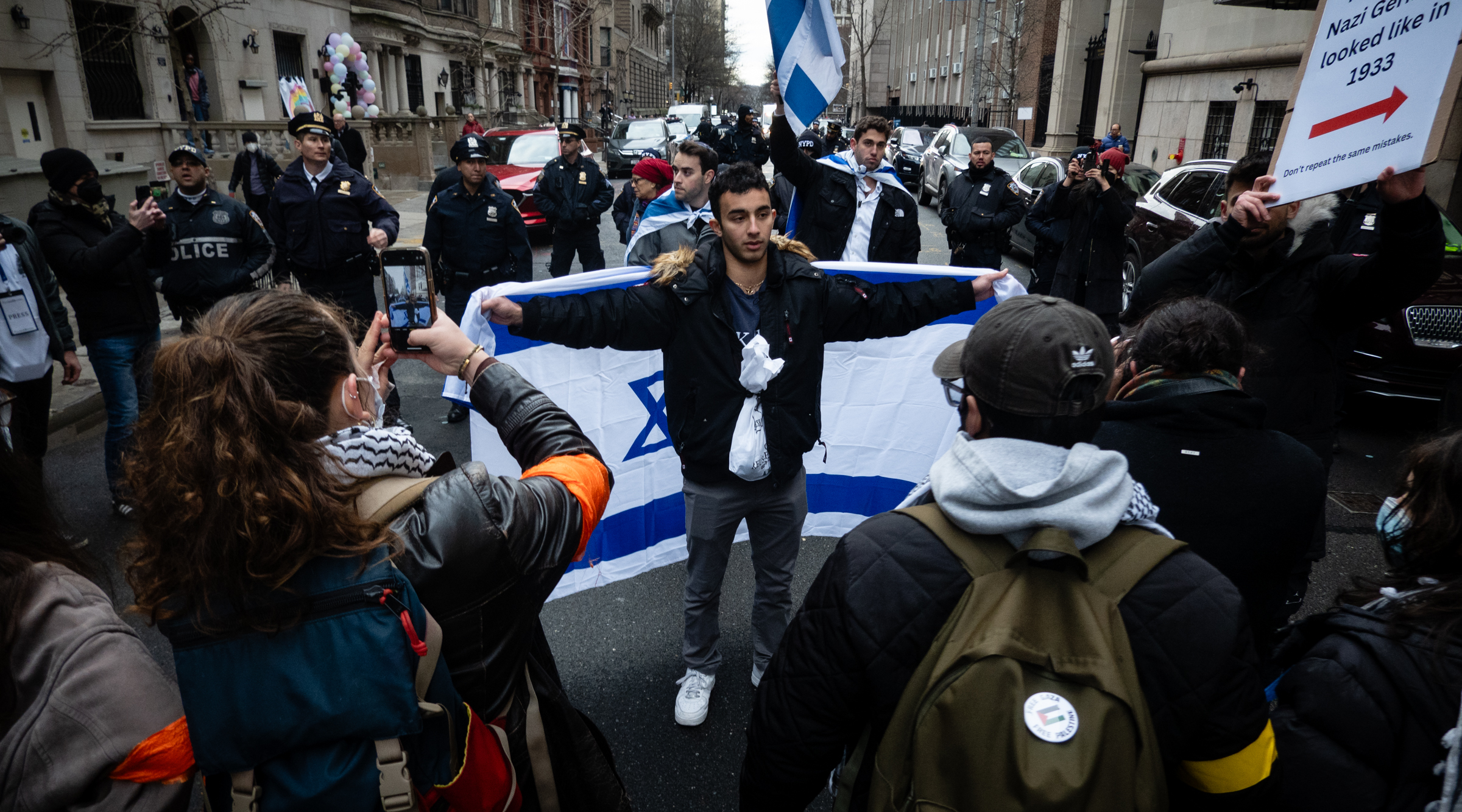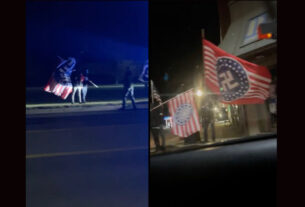WASHINGTON — A report on campus antisemitism by the Republican-led U.S. House of Representatives recommended cutting government funding to universities that boycott Israel.
The report released Thursday detailed the findings of seven congressional committees and painted a dire picture of antisemitism in the United States while specifying that it concerned “antisemitism on college campuses and in government.”
“Across the nation, Jewish Americans have been harassed, assaulted, intimidated, and subjected to hostile environments — violations that stand in stark contrast to America’s fundamental values, including a foundational commitment to religious freedom for all,” the report said.
“The Committees’ findings are alarming,” it said. “For instance, some of our most prominent American universities refused to crack down on antisemitism.”
The Education Committee, chaired by North Carolina Rep. Virginia Foxx, has gained attention over the past year-plus for a series of hearings on campus antisemitism — one of which led to the resignation of the leaders of two Ivy League schools. The committee recommended that Congress pass a law to cut federal financial aid for students, under Title IV of the 1965 Higher Education Act, at universities that boycott Israel.
“A significant amount of campus unrest resulted from anti-Israel radicals’ efforts to coerce institutions to divest from and boycott Israel,” said the report. “Congress can help stop this madness by passing legislation so any institution of higher education that contravenes U.S. foreign policy by boycotting or divesting from Israel will become ineligible for federal student aid under Title IV.”
The report focused on a handful of universities where reports of pro-Palestinian protesters harassing and intimidating Jewish and Israeli students have been most prominent, among them Harvard University, the University of Pennsylvania, the University of California, Los Angeles, the Massachusetts Institute of Technology, Northwestern University and Columbia University.
It said efforts by the administrators of those universities to address antisemitism on campus were inadequate or nonexistent. It singled out Northwestern and Columbia for not clearing out pro-Palestinian encampments last spring that, the report said, intimidated Jewish students. Northwestern’s Jewish president took flak this year for the agreement the school struck with encampment protesters, and defended the deal in a contentious congressional hearing.
“These encampments frequently generated substantial harassment – and in some cases physical assaults – of Jewish students, created hostile environments, and disrupted campus operations,” the report said. “In a dereliction of their responsibilities, many school officials failed to clear these encampments in a timely manner, often negotiating with encampment participants, and in some cases appeasing them with appalling concessions.”
The tax-writing Ways and Means Committee recommended removing the tax-exempt status of nonprofit groups that, it said, abet terrorism. The Commerce Committee, which oversees the Department of Health and Human Services, recommended that the department more closely scrutinize whether educational institutions receiving its National Institutes of Health research grants are protecting Jewish students.
The report said that protections extended to Jewish students must apply when Zionists are named as the targets of exclusion or harassment. NYU changed its by-laws to outlaw discrimination against “Zionists” this summer.
“Universities should make clear that discrimination against Zionists is an unacceptable violation of their conduct policies and must prevent hostile environments created by discrimination against ‘Zionists,’” it said. “Campus Jewish communities are often targeted through antisemitic discrimination and harassment on the purported basis of being ‘Zionists.’ While criticism of Israel is not inherently antisemitic, hatred against ‘Zionists’ is.”
When House Speaker Mike Johnson, a Louisiana Republican, launched the multi-pronged investigation in April, he made clear that its sole focus would be universities and groups often identified with the left that have backed the pro-Palestinian protests. The report barely mentioned right-wing antisemitism, and comes amid reports that the incoming Trump administration plans on shutting down the Department of Homeland Security’s efforts to track far-right extremists.
The only allusion to right-wing antisemitism was when the report cited Claudine Gay, the former Harvard University president for “disparaging” New York Rep. Elise Stefanik as a a “purveyor of hate” and “supporter of proudboys.”
Stefanik, President-elect Donald Trump’s nominee to be ambassador to the United Nations, has echoed a version of “Replacement Theory,” a baseless claim whose original form says Jews are orchestrating the mass immigration of people of color to replace whites. Stefanik’s campaign said in 2021 that Democrats want to “overthrow our current electorate” via undocumented immigrantion to the United States.
She has also used the term “hostages” to refer to people prosecuted for their involvement in the pro-Trump Jan. 6, 2021 Capitol riot, which sought to overturn the 2020 election. A number of those defendants are members of the Proud Boys, a far-right group.
Stefanik’s questioning of Gay in Congress, in which Gay equivocated about whether she would penalize calls for the genocide of Jews at Harvard, led to Gay’s stepping down.
The Jewish Federations of North America welcomed the report.
“We applaud House leadership for publishing this report, which sheds light on this critical issue,” said its vice president of government relations, Karen Paikin Barall. “To put a halt to this hatred, bipartisan collaboration along with public and private sector partners is essential. We look forward to working in the next Congress to confront this critical challenge.”




